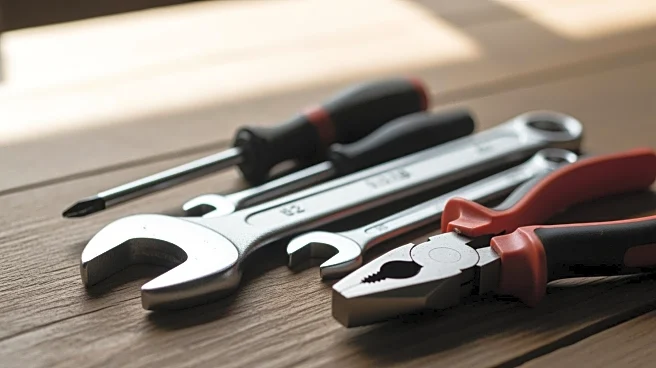Rapid Read • 8 min read
The offshore energy industry is increasingly adopting AI-based detection technology to enhance safety and operational oversight. Edinburgh-based technology firm Zelim has developed an intelligent detection system named ZOE, which is being installed on offshore rigs to reduce the risk of man overboard incidents. ZOE combines camera hardware with proprietary AI software to automatically detect and track individuals who fall overboard, providing real-time visual tracking and geo-location data. This system has been successfully operating on a North Sea rig and is now being deployed on a second jack-up rig, indicating growing interest in AI-driven safety solutions within the sector. Zelim's CEO, Sam Mayall, highlights the system's ability to adapt to various maritime conditions, offering consistent monitoring and rapid response capabilities.
AD
The integration of AI-powered detection systems like ZOE represents a significant advancement in offshore safety technology. By reducing detection times from minutes to seconds, these systems can drastically improve emergency response outcomes, potentially saving lives. The technology not only enhances personnel safety but also supports asset security monitoring, making it a valuable tool for offshore operators. As AI systems provide consistent and reliable detection, they augment human judgment and decision-making, contributing to a broader approach to safety and operational assurance. The collaboration with the US Coast Guard further underscores the importance of AI in improving search and rescue operations, where human visual spotting can be inconsistent.
As AI detection systems continue to be deployed across the offshore energy sector, operators may increasingly integrate these technologies into their standard safety protocols. Zelim's ongoing collaboration with the US Coast Guard suggests potential for further validation and refinement of the technology. The development of additional modules, such as Watchkeeper and Shield, indicates a move towards comprehensive situational understanding and security monitoring. These advancements could lead to wider adoption of AI-driven safety solutions, setting new standards for offshore operations.
The deployment of AI-powered detection systems raises ethical and operational considerations regarding the balance between human oversight and machine autonomy. As these systems become more prevalent, discussions around data privacy, system reliability, and the role of human operators in emergency situations may emerge. The long-term impact of AI integration in maritime operations could lead to shifts in industry standards and practices, emphasizing the need for continuous evaluation and adaptation.
AD
More Stories You Might Enjoy











